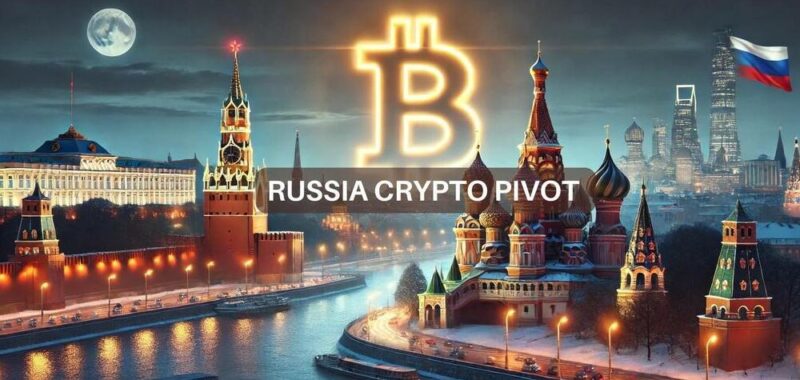- Russia made $555 million in taxes from $3B BTC mined last year in the wake of Western sanctions
- This remarkable feat tipped Mara’s Thiel to call Bitcoin and mining a “national security” matter
Fred Thiel, CEO of Bitcoin miner Mara, is in the news today after he claimed that mining and BTC strategic reserves are national security interests. He made the remarks after it was revealed that Russia mined $3 billion BTC last year amid Western sanctions.
“Just shows that #bitcoin is a matter of national security, both bitcoin mining and strategic reserve. Russia mined over $3 billion in Bitcoin last year amid sanctions.”
U.S vs Russia in the crypto space
According to Russian outlet Izvestia, the aforementioned information was revealed by Sergey Bezdelov, Director of Russia’s Industrial Mining Association, during a mining session on Wednesday. He also noted that the government earned $555 million in taxes from BTC mining taxes in 2023. He said,
“In 2023, 54K Bitcoins were mined in Russia. According to our estimates, the annual increase in taxes is 50 billion rubles. Now there is a law on the correct “gentle” regulation. 50 billion – with today’s scenario conditions. And new investors will come.”
Although this figure is less than 1% of Russia’s $2.27 trillion GDP (Gross Domestic Product), it points to a remarkable tax revenue source. Especially given the country’s economic woes following Western sanctions.
To its credit, despite its regulatory challenges, the United States has seen some progress following the approval of Spot ETFs (exchange-traded funds) for Bitcoin and Ethereum [ETH]. In July, Donald Trump pledged to establish a national strategic reserve for BTC if elected President. The former President also reaffirmed his commitment to making the U.S the world capital for BTC and crypto.
On the contrary, Russia recently passed crypto mining laws and established an experimental framework to drive international trade using crypto. In August, the government unveiled plans for stablecoins pegged on the Chinese Yuan and BRICS currencies to drive this bold crypto plan.
Russia’s crypto plan and its obstacles
Additionally, it established two crypto exchanges in St. Petersburg and Moscow to allow select firms and individuals to conduct trade and settlements through cryptocurrencies. The country’s crypto pivot is its solution to Western sanctions, which reportedly affected its economy through delayed cross-border payments and trade.
In fact, according to the latest Chainalysis report, the Russian government could use several crypto exchanges, such as Exved and Garantex, to evade sanctions. However, the firm noted that large-scale usage at the national and international levels could face several challenges, including sanctions on associated wallet addresses.
Part of the report read,
“On-chain sanctions evasion at scale remains highly improbable, given Russia’s total foreign exchange reserves are just under half a trillion dollars…Wallet addresses associated with CEXs, mining services, and other on-chain entities can be identified, attributed, and potentially sanctioned.”
It remains to be seen how Russia will navigate these challenges as it aims to eclipse crypto mining in the United States.

